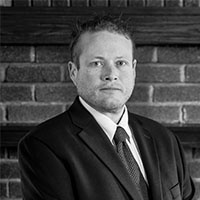Cass County, ND RICO Act Lawyers
Sponsored Law Firm
-
 x
x

Click For More Info:
-
The Law Offices of Richard L. Cooper, P.A.
848 Brickell Avenue Suite 800 Miami, FL 33131» view mapDWI/DUI, Drug Trafficking, Felony Nationally Ranked Top 40 Under 40
With Richard L. Cooper you can expect a trusted confidant who will work diligently to fully understand your case and determine a road map to help you regain control of your life.
800-756-2781
Not enough matches for Cass RICO Act lawyer.
Below are all Cass lawyers.
Todd Michael Miller
✓ VERIFIEDTodd Miller was born in Fargo, North Dakota where he attended school and graduated from Fargo North High School. He is an Eagle Scout. After graduatin... (more)
Lindsey Duane Haugen
✓ VERIFIEDBorn in Larimore, ND, Lindsey graduated from the University of North Dakota in 1999 with a Bachelor of Science in criminal justice and minors in socio... (more)
Stacey Tjon Bossart
✓ VERIFIEDStacey has been a member of the firm since July 1, 2012. She had been a partner of another Fargo law firm for 15 years prior to joining Haugen Moeckel... (more)

 Richard L. Cooper Miami, FL
Richard L. Cooper Miami, FL AboutMiami Attorney at Law
AboutMiami Attorney at Law ServicesCriminal Defense
ServicesCriminal Defense



